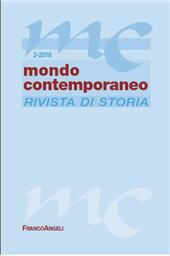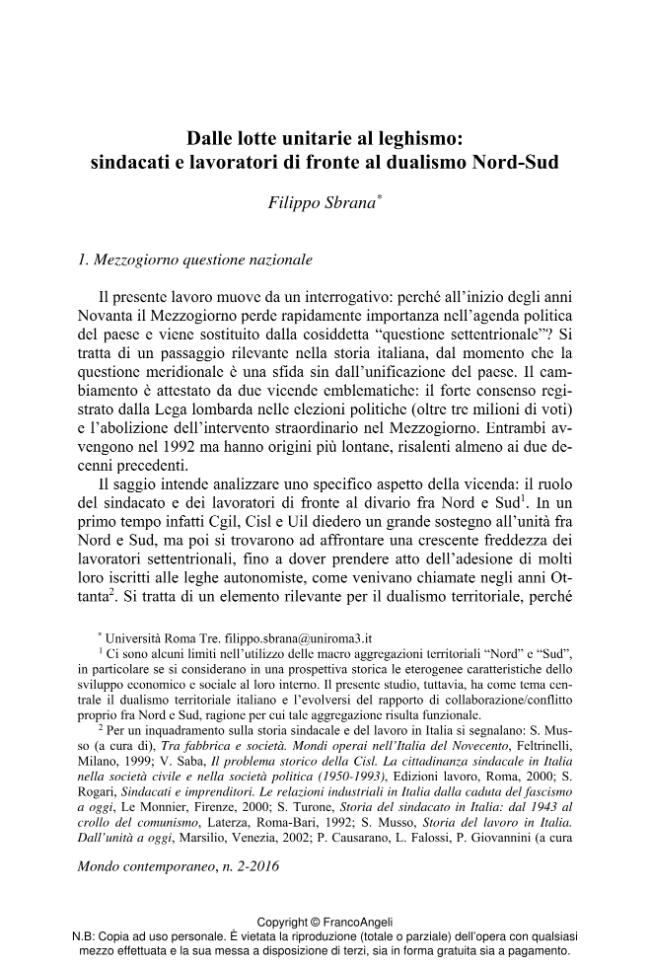Dalle lotte unitarie al leghismo : sindacati e lavoratori di fronte al dualismo Nord-Sud
87-137 p.
This article analyses the decline of the so-called "Southern Question", for a long time a top priority of Italian governments, at the beginning of the 1990s. This was a structural change, since the development of the South has represented a crucial challenge for Italy since its Unification. The article investigates this topic with an original approach that takes into consideration, in particular the point of view of trade unions through the scrutiny of archival records, newspapers and other primary sources. During the 1970s trade unions had a strong negotiating power and were able to mobilize workers all throughout the country to reach the goal of overcoming the North-South gap. Few years later, however, the economic crisis that followed the oil shock undermined Northern Italy's support to the whole project, making it impracticable. In the 1980s, while Italy was involved in major domestic and international changes, the interest of Northern workers towards Southern ones further decreased, eventually turning in
to opposition against them. A lot of trade unions members joined the Lega Lombarda and other Northern populist parties and movements. These events pushed in favour of the end of the "extraordinary intervention for the South", increased the gap between North and South and eventually contributed to the end of the so-called "First Republic". [Publisher's Text].
Fait partie de
Mondo contemporaneo : rivista di storia : 2, 2016-
Articles du même numéro (disponibles individuellement)
-
Informations
Code DOI : 10.3280/MON2016-002004
ISSN: 1972-4853
DISCIPLINES
KEYWORDS
- Mezzogiorno, questione meridionale, questione settentrionale, sindacati, crisi economica, Lega
- Italy, Southern Question, depressed areas, North-South gap, trade unions, economic crisis



